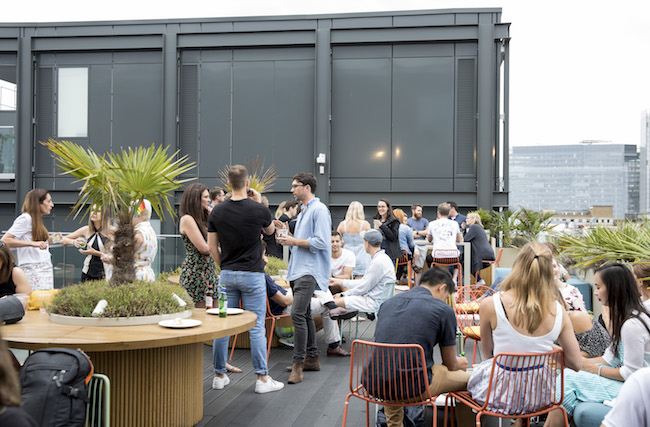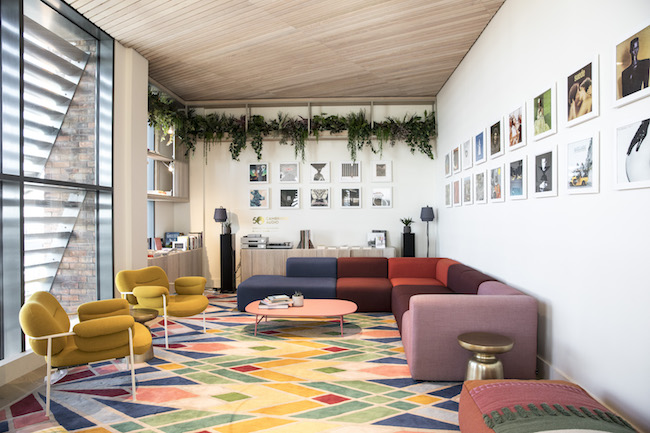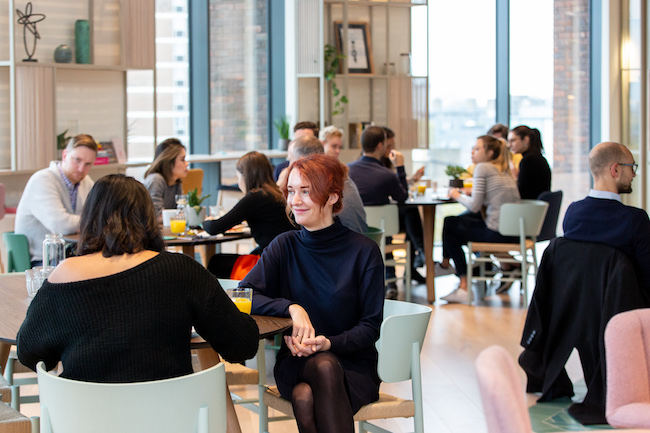
Do workspace operators need to adapt to the changing needs of users?
This is one of the questions we’ll explore at GCUC UK in a panel discussion titled Defining a New Way of Working.
Panelists Katrina Larkin, cofounder of Fora; Leeson Medhurst, director at 360 Workplace; David Kinnaird, COO at essensys; and moderator Oliver Marlow, creative director at Studio Tilt, will discuss how desks and wifi alone don’t attract workspace members.
In advance of the event, I spoke with Larkin about the normalization of sharing, the importance of space operators living the workspace experience, and challenges the London workspace sector faces.
Cat Johnson: We know that a desk, internet and a nice view are no longer enough to attract and retain clients. From your perspective, what do workspace operators need to be doing?
 Katrina Larkin: Fora is a very people-centric organization. I know people can say they’re people-centric and they listen to their customers, but you really have to live it. You have to be a part of it. You have to live and breathe what you do.
Katrina Larkin: Fora is a very people-centric organization. I know people can say they’re people-centric and they listen to their customers, but you really have to live it. You have to be a part of it. You have to live and breathe what you do.
I’m sitting here in the boardroom at Fora Borough. I’ve done my meetings here using the same technology as our residents. I’m about to go for a float in the floatation tank through our partnership with 3Tribes next door.
I’m really living the experience. I consider myself a resident too. I’ve had lots of conversations today. It’s that connection and really using your space that’s really important. I joke that I drink my own Kool-aid.
We’re creating spaces, not for a customer we don’t know—we’re creating spaces for a community that is living and breathing all around us–a community that we connect with on a daily basis. That’s really, really important.
I think that’s why flexible workspaces are excelling. When you look at traditional leases, the client was the person signing the lease, not the people actually within the space. We’re now absolutely revolutionizing the workspace because we’re creating the spaces and connecting with the end user.

Things have evolved a lot since the early days of coworking and shared workspace. How do you think operators need to further adapt to the changing needs of users?
Things have evolved in the last few years, and people are embracing sharing, as well. Shared economy is becoming more and more a culture. First it was that you didn’t need to own your record collection—you could share music and have access to music.
Now, in the States, you have the success of companies like Rent the Runway where you can rent your clothes. It’s becoming more and more a norm. Now there’s a company in London where you can rent furniture for your home.
The big shift may be not so much in what we offer, but the customer’s understanding of what we offer—the benefit that they can have a richer experience and have access to better designed spaces and events programs by sharing.
We don’t all need a boardroom, or lactation room, or floatation tank, or big screening room like we have at Princelet Street. But you can have it when you need it and you can have more.

What are some of the biggest challenges the workspace industry faces, particularly in London and the UK?
That’s a really good question. I suppose the market will get more competitive, there will be more pressure on desk rates. Like in any business sector, it’s understanding what you offer and really staying on top of your game—constantly delivering.
I’ve seen it in so many sectors and evolutions of different sectors: more competition comes in and people water down their offer. That’s something at Fora we never, never, never do, and will never do.
That’s why our buildings have high occupancy and we’re holding our desk rates. People value what they’re signing up to. We’re not selling a desk; a desk and wifi are by-the-by. What we are packing up is that richer, more productive experience for our residents.

What would you like to see from the London workspace sector?
More of us. The days of signing up to long leases, where your landlord disappears until it’s time to hike your rent, are gone.
the big change now is that employees are being more vocal about the culture and the workplace experience they want. That’s a lot to manage if you’re a business owner. That’s really where the flexible workspace market can grow.
Join the conversation about the changing needs of workspace users 23-24 September at the second annual GCUC UK coworking conference. You can book your ticket here.
[ssba-buttons]
